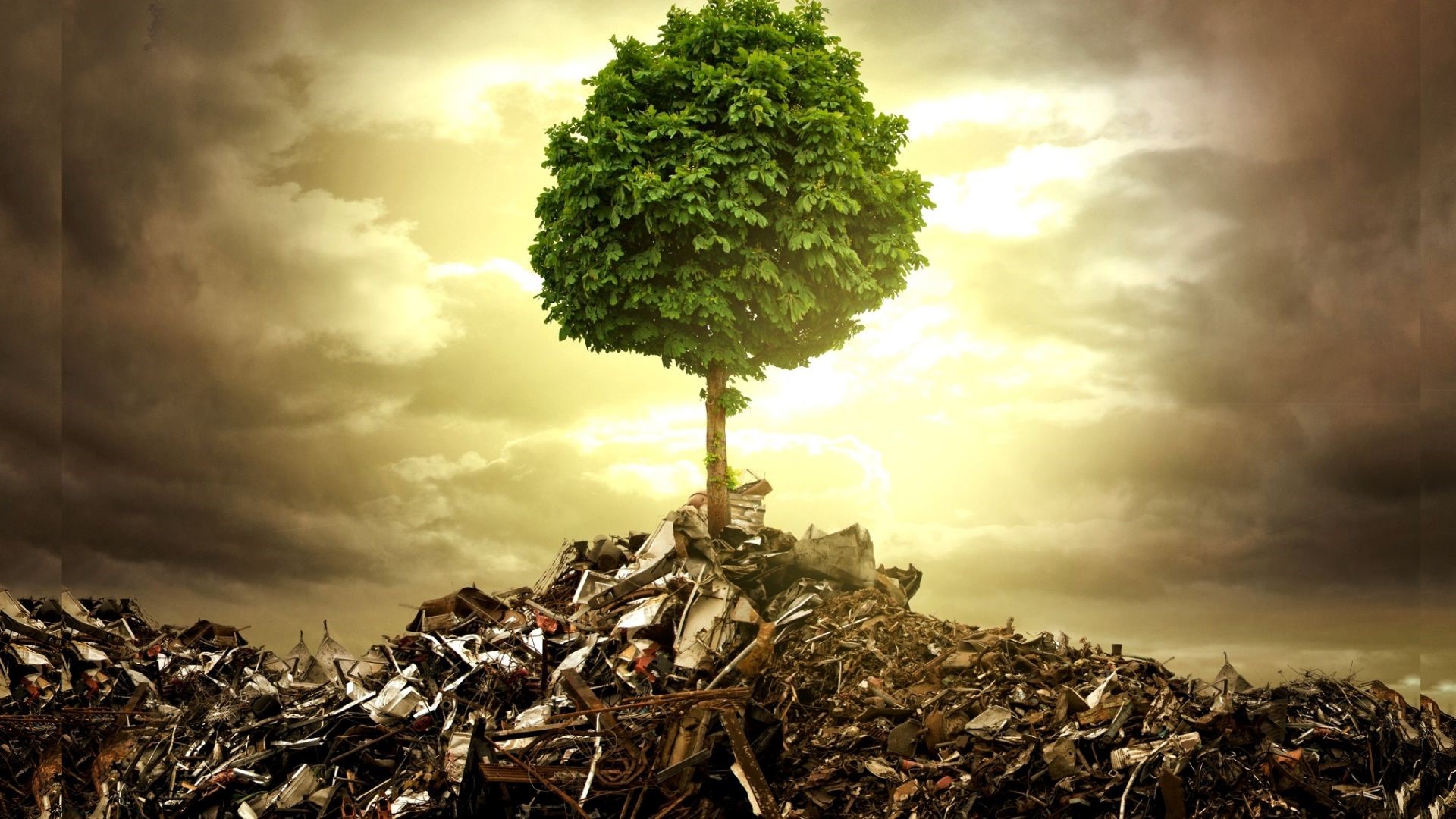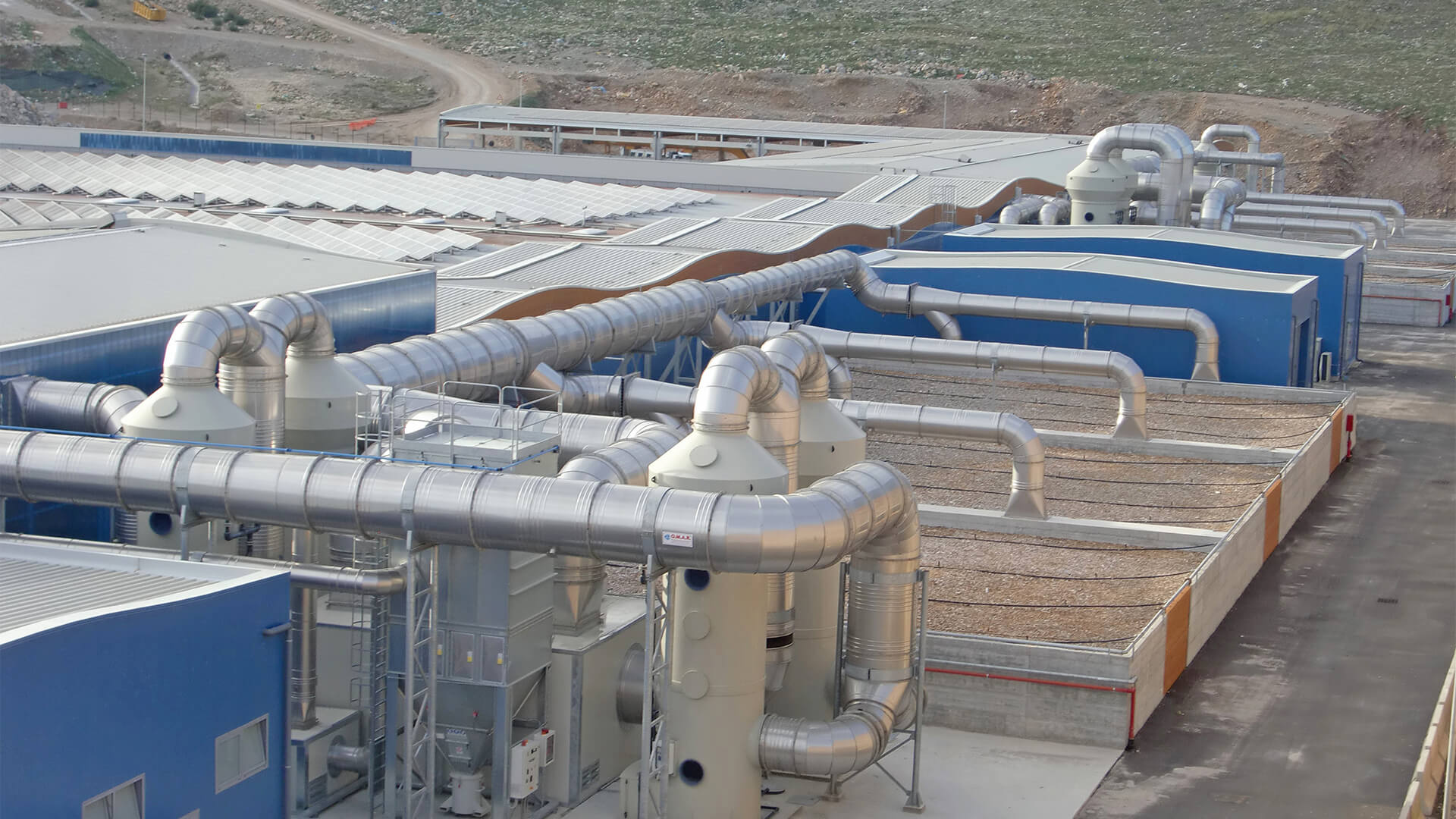
More RDF, less pollution.
-
More RDF, less pollution.
The production of RDF concludes the recycling cycle of waste.
RDF is a combustible material obtained from the non-recyclable dry fraction of municipal solid waste and special non-hazardous waste (plastic, paper, textile fibers), which is bio stabilized, reduced and transformed into Refuse Derived Fuel (RDF), used to power generating stations, waste-to-energy plants and cement factories.
In the production of this secondary resource, an effective bio stabilization process of the biodegradable wet fraction is essential, in order to ensure correct drying and sanitation of the material, thus reducing its putrefying and weight.
The following refining of the material for the production of RDF requires a series of precise screening operations, aeraulic separation, separation of the metal fractions, secondary shredding and constant control of the critical values, with the aim of producing constant and high quality RDF, directed to energy enhancement.
Finally, an accurate treatment suitable for obtaining an impeccable result in terms of material final quality cannot be separated from adequate systems for the filtration of dust, pollutants and odors in the environment, having special consideration for operating costs.
ITR Recycling Technologies designs and builds plants for the treatment of the “dry residue”, of the non-recyclable material deriving from the scraps of the waste from separate collection treatment and from the excesses of the mechanical and biological TMB treatment plants.
The result of the treatment is a material in such size as to be destined to plants authorized to use this particular fuel (such as cement factories, thermoelectric power plant, waste-to-energy plants).
All plants are equipped with independent controls for the simple insertion into existing process lines and a software management system that allows the constant monitoring and calibration of the entire plant, even remotely, and the integration into factory 4.0 systems.
The national average for replacing fossil fuels with Refused Derived Fuel represents just over 20%, against a European average of 47.7% in 2018 and peaks of over 81% reached by some European countries.
We have a lot of room for improvement.
The use of RDF in cement factories is an interesting alternative to the use of non-renewable fossil fuels (coal, pet-coke), it reduces the costs of calories used for cooking cement and clinker, avoids landfilling of waste undifferentiated and the related CO2 and methane emissions deriving from the digestion of the organic part of the waste by bacteria.
Furthermore, RDF contains fractions of nitrogen and sulfur smaller than the fossil fuel ones, so its use in cement factories’ kilns helps to reduce emissions of nitrogen oxides (NOx) and sulfur oxides (SOx).
ITR & OMAR renew their commitment to their customers every day, to support them in the engineering, design, production and installation of plants and machines for the selection, treatment, enhancement of waste, the production of RDF from non-recyclable dry fractions and the treatment of the air and the abatement of pollutants from these processes. The DNA of Omar S.r.l. is that of a verticalized company in which absolute and integrated control of internal processes achieves the great ability to stand out on the market for the specificity and environmental and economic sustainability of its solutions.

FOR RECYCLING PLANTS
